Tunisian association censures president Saied's move to sack judges, calls it 'massacre'
The Tunisian Judges Association has called President Kais Saied's controversial decision to sack dozens of judges as a "massacre" amid growing fears about the independence of the judiciary in the North African county.
The Judges Association said on Thursday that the move aims to allow him to influence the judiciary and create vacancies to appoint his loyalists.
President Saied on Wednesday dismissed 57 judges, accusing them of corruption and protecting terrorists in a purge of the judiciary. In a televised address, the president said he had “given opportunity after opportunity and warning after warning to the judiciary to purify itself”.
Among those sacked was Youssef Bouzaker, the former head of the Supreme Judicial Council, whose members Saied replaced this year as he moved to take control of the judiciary.
The council had acted as the main guarantor of judicial independence since Tunisia’s 2011 popular uprising that ousted long-time ruler Zine El Abidine Ben Ali.
Another prominent judge on the list of those sacked was Bachir Akremi, whom some political activists accuse of being too close to main opposition Ennahda party. Ennahda and Akremi both deny that.
Saied has also said he will introduce a new constitution this month that he will put to a referendum next month. However, nearly all Tunisia’s political parties have rejected the move along with the powerful UGTT labor union.
Saied's power grab on July 25, 2021 was welcomed by many Tunisians tired of a frequently deadlocked post-revolutionary democracy.
But his opponents, including the Ennahda party, which has dominated the country's post-revolution politics, have warned of a return to autocracy.
The 2014 constitution was the result of intense negotiation among political parties and civil society bodies, but Saied has rejected calls for a similar inclusive dialog, saying those who opposed his measures should be banned from discussion on Tunisia’s future.
Tunisia has been gripped by a political crisis since the president dismissed Prime Minister Hichem Mechichi and suspended parliament for 30 days in July 2021. The Tunisian president said at the time that his decision was meant to “save Tunisia, the state, and the Tunisian people,” in the midst of growing public anger and protests against the government’s handling of the COVID-19 pandemic.
His opponents have slammed the move as a “coup,” while rights groups have warned that the country could be sliding back into autocracy.
Nearly two months later, Saied appointed Najla Bouden Romdhane, a little-known university professor, as the country’s prime minister.
Saied’s seizure of power initially appeared to win broad support among Tunisians amid an economic and public health crisis, but it later caused growing opposition, even from major domestic players who were initially supportive.
VIDEO | Press TV's news headlines
Senior Russian general shot and wounded in Moscow: Officials
UK ordered in 'milestone' court ruling to pay $570 million for colonial-era massacre
VIDEO | Defying the rubble, Gaza opens its first face-to-face school since start of war
‘Ready for next round’: Million-man rally in Yemen backs Gaza, resistance
FM Araghchi departs Muscat for Doha following nuclear talks with US
Israeli keeps killing more Palestinian civilians in Gaza amid relentless ceasefire violations
Aliyev: Azerbaijani territory will not be used for threats against Iran


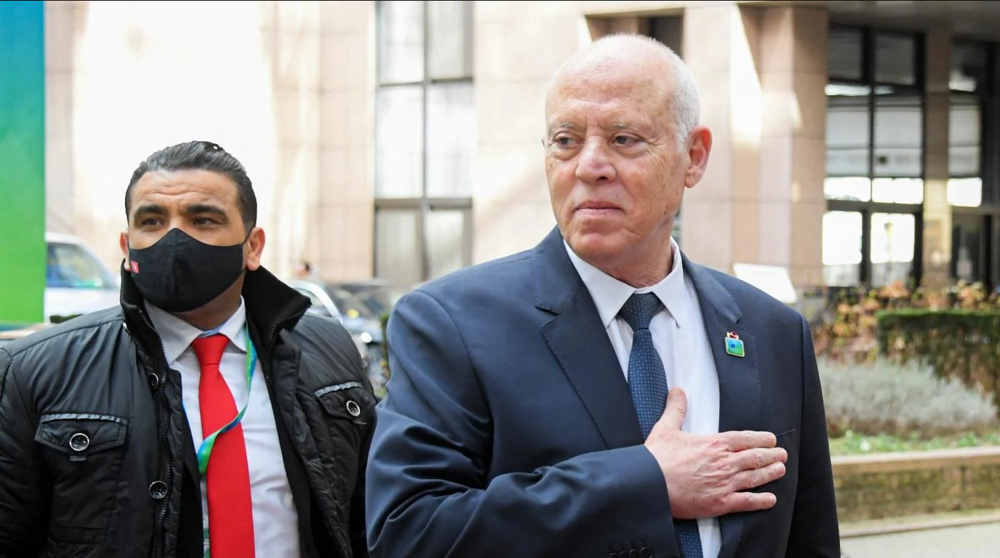
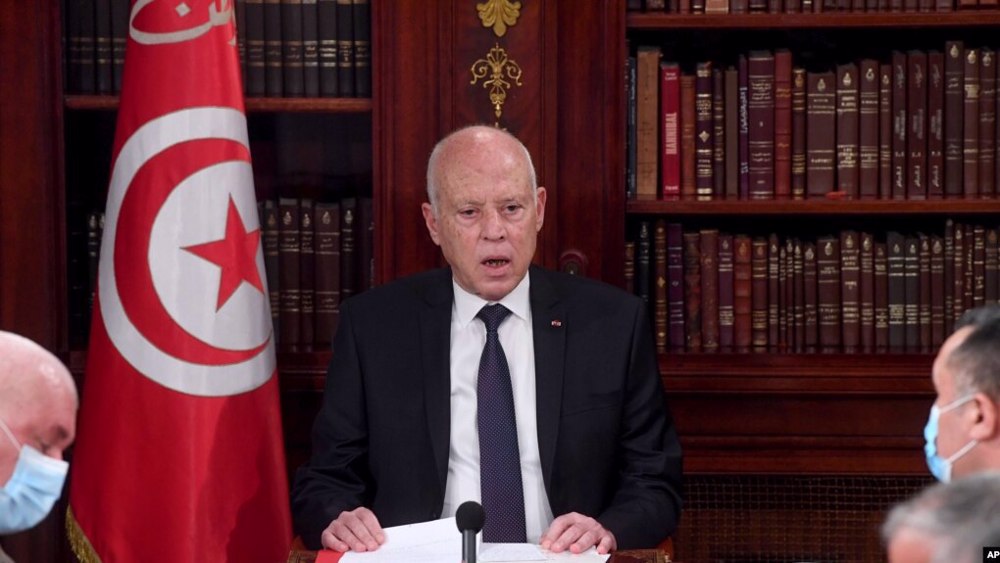
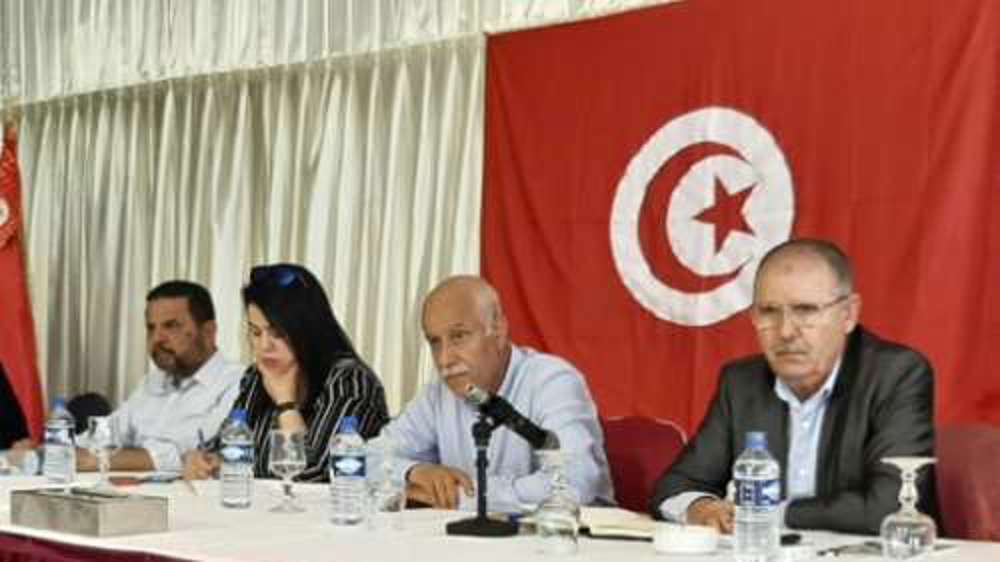
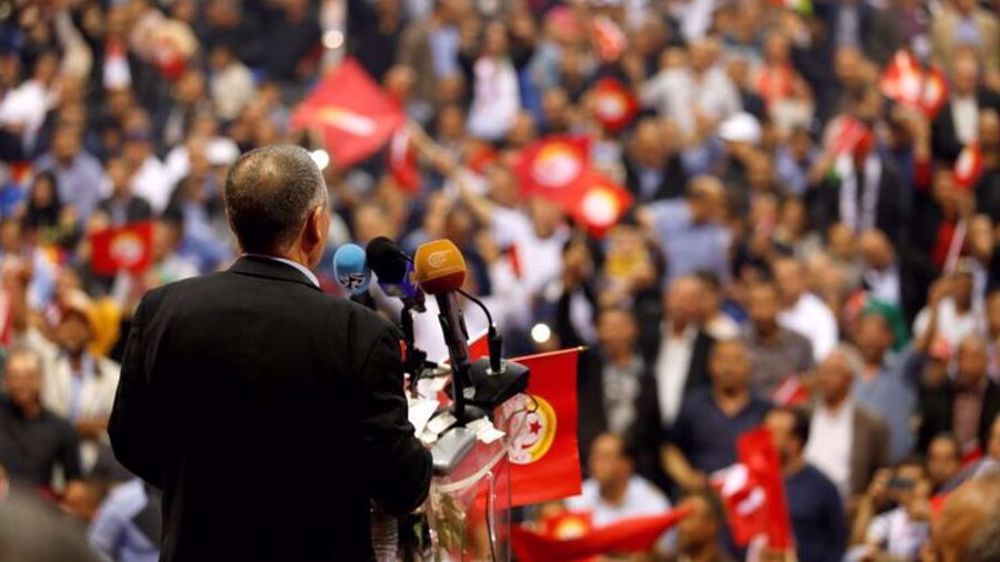

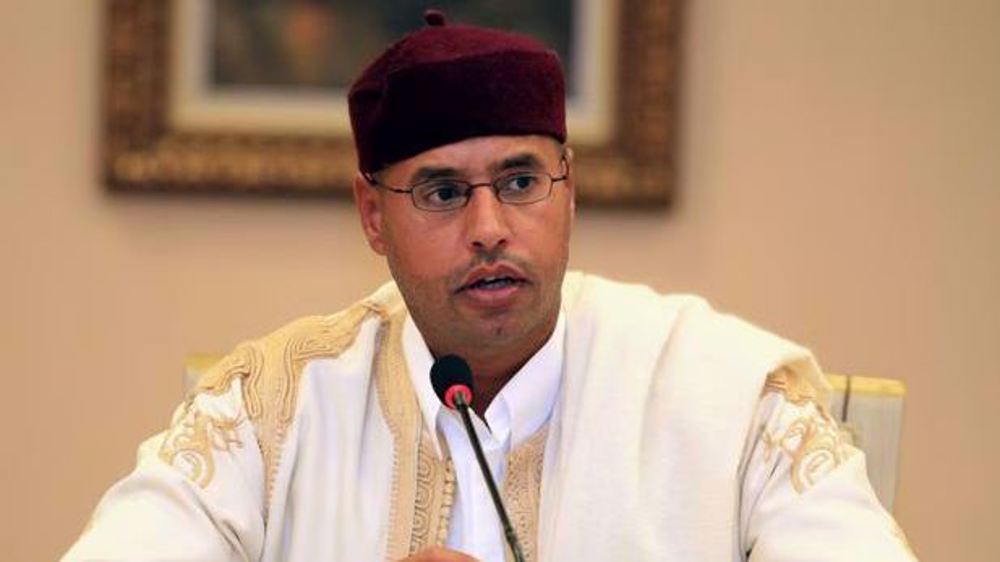
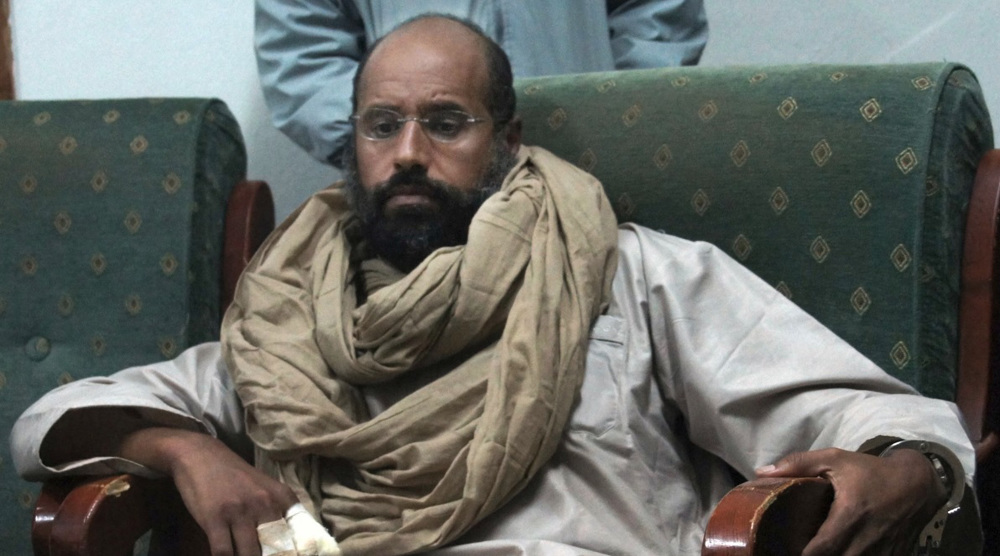



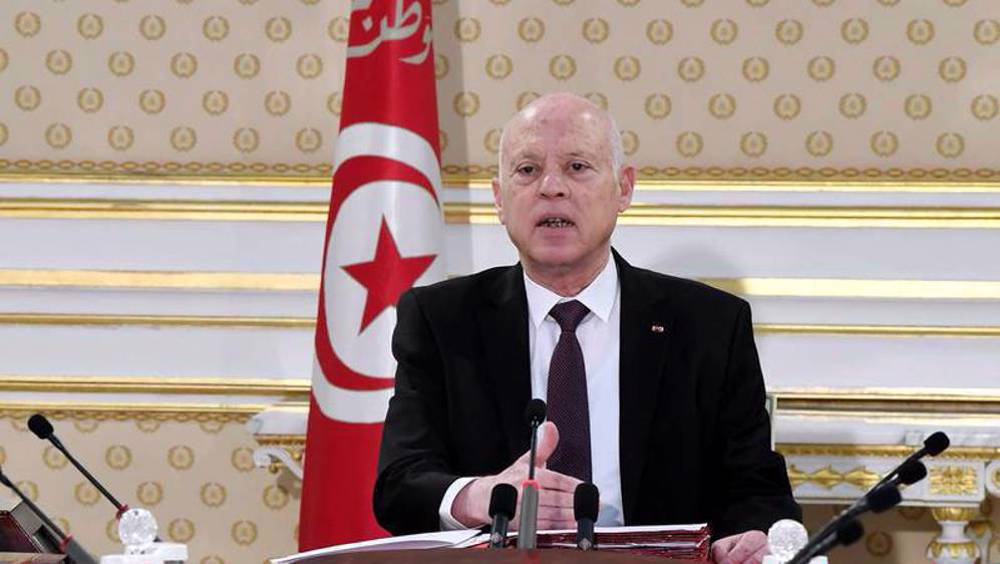
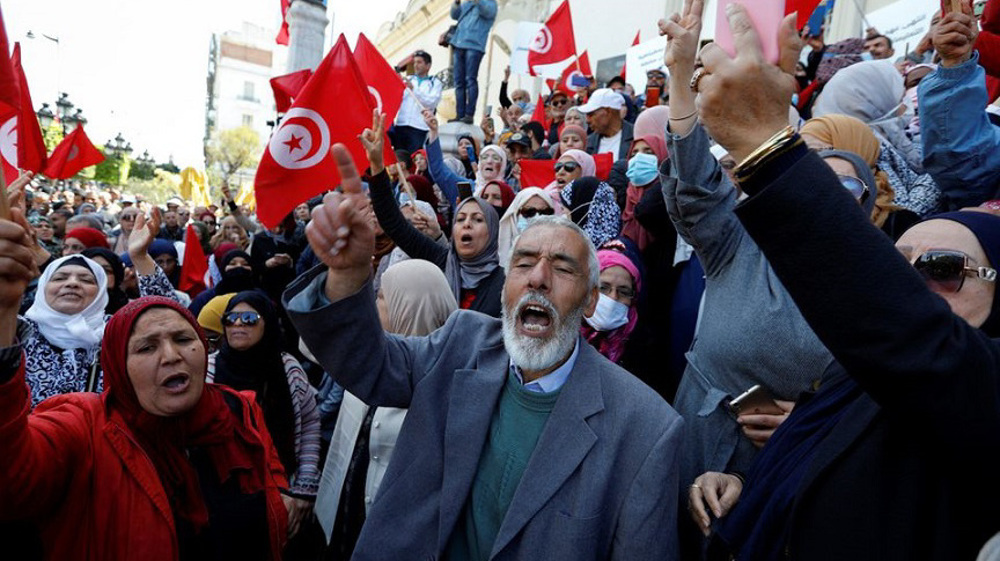
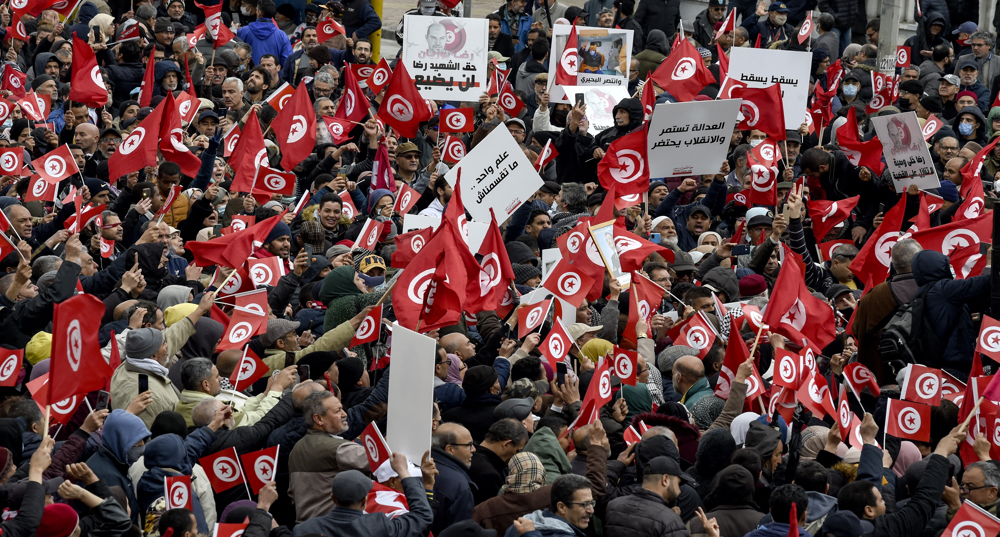
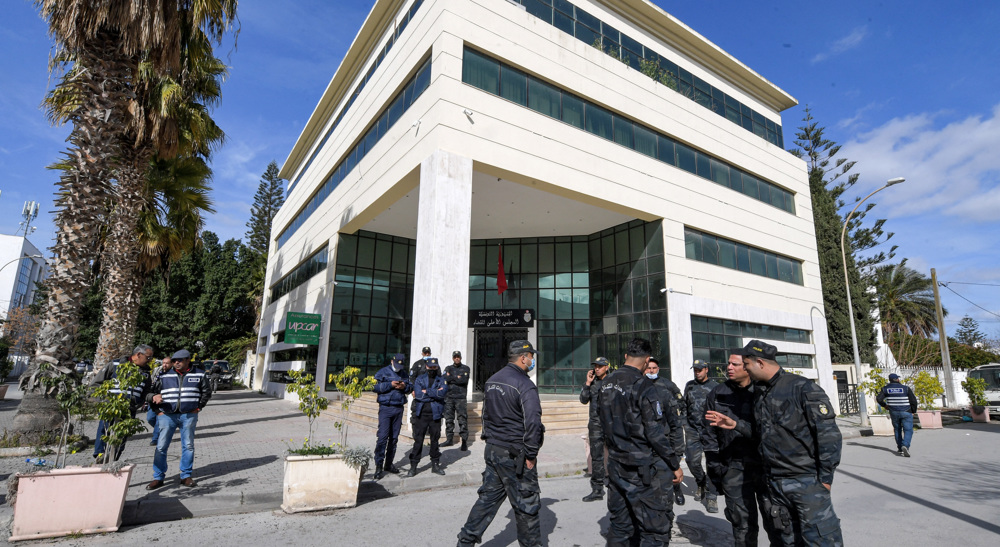
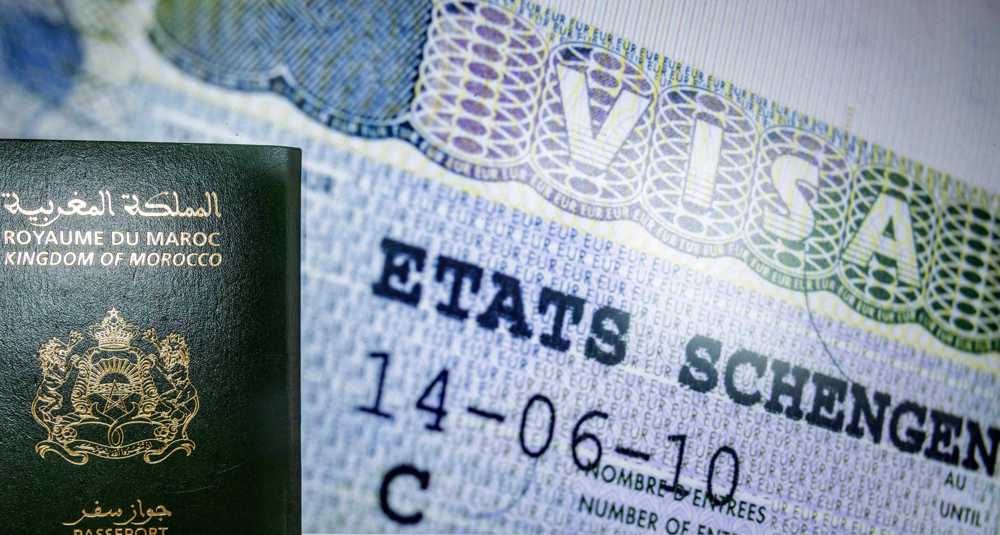
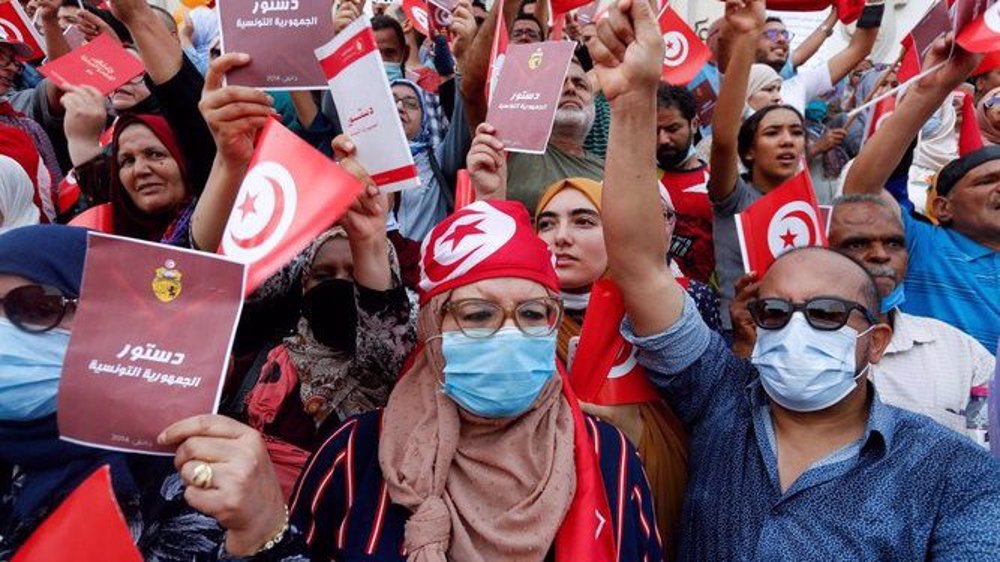


 This makes it easy to access the Press TV website
This makes it easy to access the Press TV website